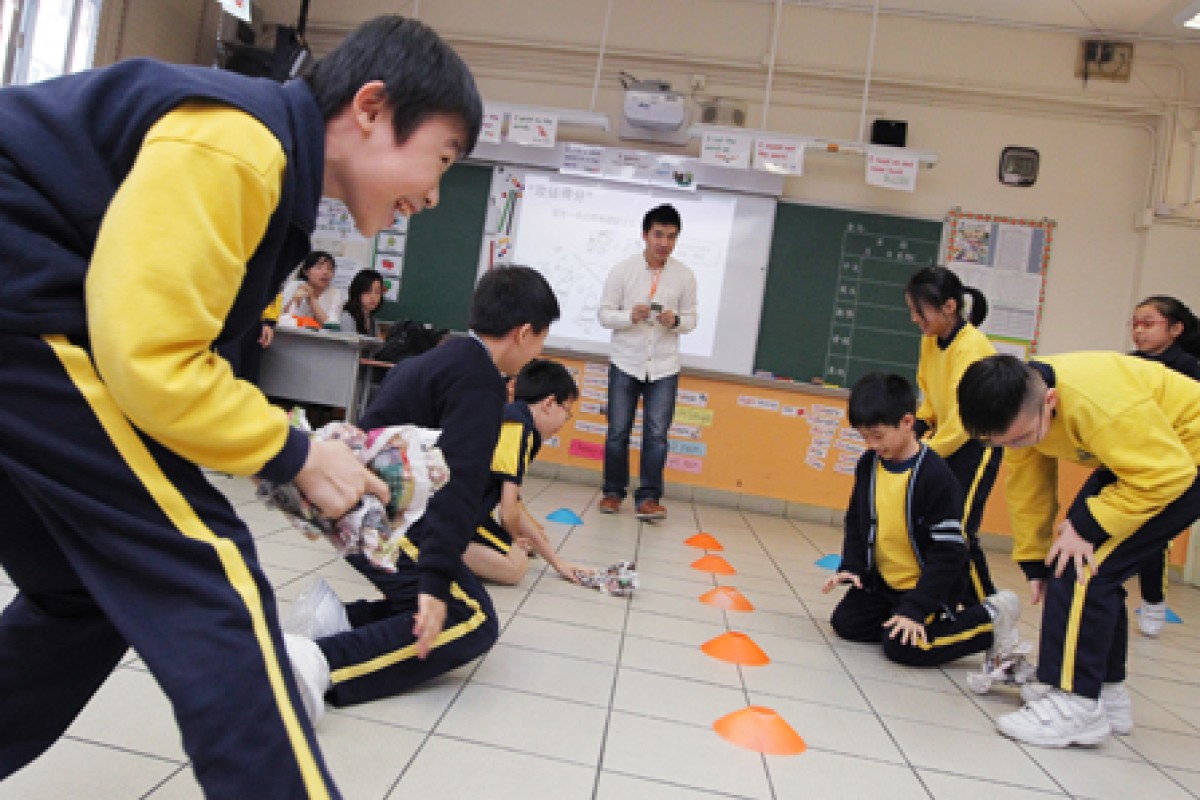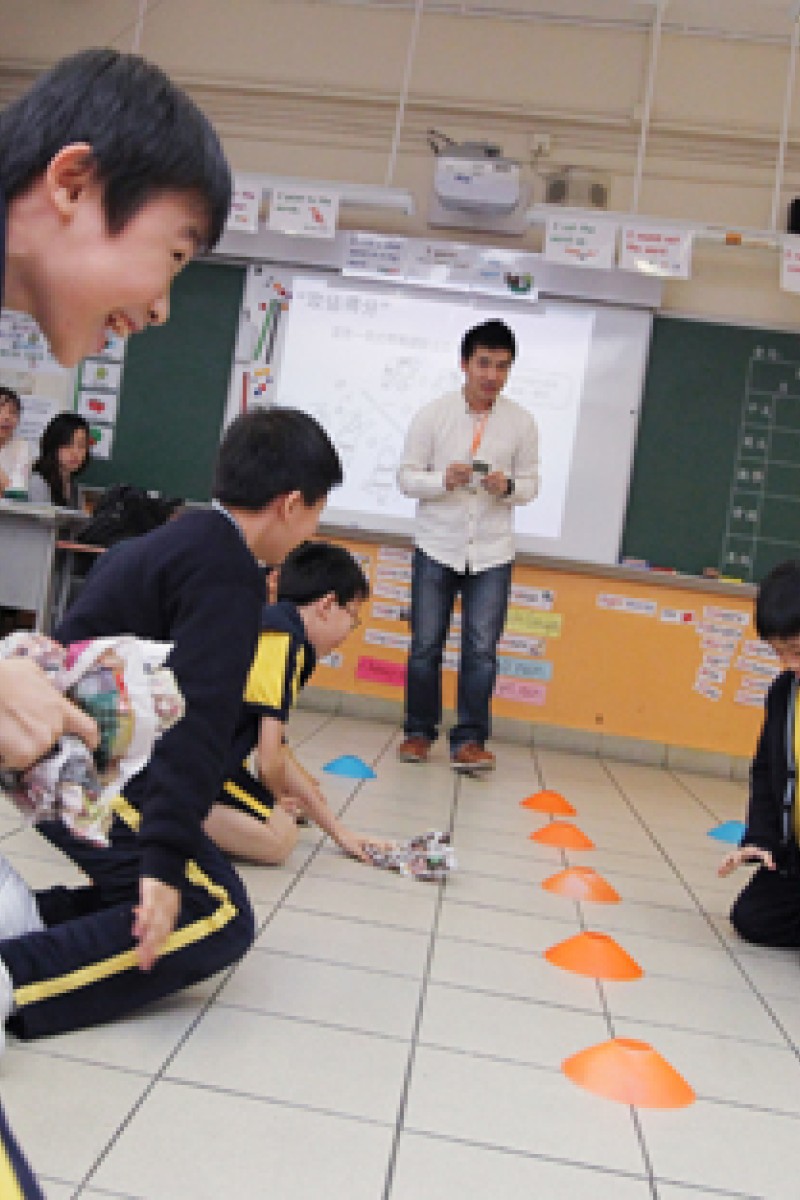 Students at Fresh Fish Traders' School are learning that school shouldn't just be about exams.
Students at Fresh Fish Traders' School are learning that school shouldn't just be about exams.In the 2011-12 school year, 96per cent of secondary schools said that extra-curricular experience was one of the main criteria for choosing who they accepted into Form One.
It sounds like a nice idea, but not everyone - especially students from low-income families - is able to take part in any after-school programmes without extra financial help. This is where the social enterprise Playtao Foreverland comes in.
Set up in 2009, the project is run by Social Ventures Hong Kong (SVHK), a philanthropic organisation that supports social enterprises and entrepreneurship.
The project offers underprivileged students free, or affordable, after-school programmes, including tutorial classes and homework assistance, field trips, games and activities in different subject areas. Trips have included visiting an organic farm to meet and learn from local farmers, rides on the Star Ferry, and tours of the University of Hong Kong campus, and a number of Hong Kong's museums.
"We want to contribute to children's future happiness, especially those from underprivileged families," says Francis Ngai Wah-sing, founder and chief executive of SVHK, and director of Playtao Foreverland.
"We believe every child should have an equal opportunity to pursue their interests and dreams."
So far, more than 280 students from seven schools - six primary and one secondary - have taken part in Playtao Foreverland's programmes. One school, Fresh Fish Traders' School, in Tai Kok Tsui, first tried the service in 2009, and reintroduced it last year.
"Our students are from low-income families whose parents are all busy working," says Chow Keung-wai, who runs the school's extra-curricular activities. "They won't be able to help their children with their homework, or take them places, so Playtao is a useful resource for them."
The extra-curricular activities run at Fresh Fish Traders' School have proved popular.
Ngo Le-ling, 10, took part in the activities in 2009, when she was in Primary One. She remembers the art lessons fondly. "We made some arts and crafts with the teacher; it was fun and relaxing and I enjoyed it a lot," says Le-ling, who is now in Primary Five.
"I also enjoyed the out of school activities, like visiting the museum. Now I have lots of exams and homework, I can't take part anymore. I wish I could do it again."
Leo Ng Wai-lok, assistant manager of SVHK and the co-ordinator of Playtao Foreverland, says play is an important part of its programmes.
"Play is more interesting for children; it motivates them to learn," Ng says. "So, when we plan our activities, we try to avoid the highly structured format found in the classroom." Their programmes are designed and run by experienced, retired teachers, who are volunteers, and by part-timers, who are university students trained in the subjects.
Ng says one big challenge facing the team is finding venues. "We need to co-ordinate with each school's administration to ensure the school and classrooms stay open late," says Ng. "But some schools need to be closed by 6pm - a time when many parents still aren't free to pick up their children."
Another challenge is to find schools that need their services, because some schools and parents may not want their children to be labelled as "underprivileged".
However, Ng and his team are keen to serve needy children across Hong Kong.
"We want schools to know we are there to help. We want parents to know we can offer their children an opportunity to play and learn after school. And we encourage students to tell their parents which kinds of activities they want to take part in," he says.
Play, it appears, isn't just for fun - it's good for you.
